Just as it is important to take cultural nuances and preferences into account when companies are creating sales, marketing, and operational strategies, the same principles should be applied when conducting market research on a global basis. If a one-size-fits-all research approach is used on a global basis, you risk missing subtle differences across geographies and cultures which could lead to frustrated respondents and misleading results. Therefore, understanding the local culture and customs is critical to a successful research program.
Below are a few examples of how research approaches and methodologies may need to be altered in order to achieve actionable results on a global basis:
- Lack of or inconsistent internet or telephone connectivity continues to prevent effective use of those modalities in some emerging markets (e.g. in Kenya) so face-to-face methodologies may need to be employed.
- Different modalities may need to be used in certain countries. For instance, in Japan, business respondents typically do not like to stay on the telephone for more than 10 minutes (expressing even more time pressure than other countries). Online methodologies often need to be used in order to complete longer studies.
- Local customs may need to dictate the composition of in-person or web-based focus groups. In some countries (for instance, India) it is not always appropriate to conduct focus groups with mixed groups of men and women. In other countries (e.g. Japan) conducting a single group with a wide age range may not be appropriate given the hierarchical culture. Mixed groups would likely lead to a situation where participants don’t participate as actively and openly as they would otherwise.
- Qualitative research techniques likely need to be tailored to the country and culture. For example, in a more expressive country like Brazil, an open conversation about reactions to a specific advertisement might be more effective while in a more reserved culture you might ask respondents to write their reactions to the advertisement privately before expressing them to the group.
- When analyzing quantitative results, note that respondents in different geographies often use scales differently. Some tend to respond using higher integers no matter what question is asked (such as in Italy); others are more cautious no matter what the topic (e.g. Japan). A normalization process can be used to look at the scores across countries and make some statistical adjustments so that results can be more accurately compared across countries.
Respondents tend to be more thoughtful and forthcoming when they are in an environment that is comfortable for them. The more you take into account some of these cultural nuances in the up-front research planning, the more likely you are to get actionable insights for your organization.


